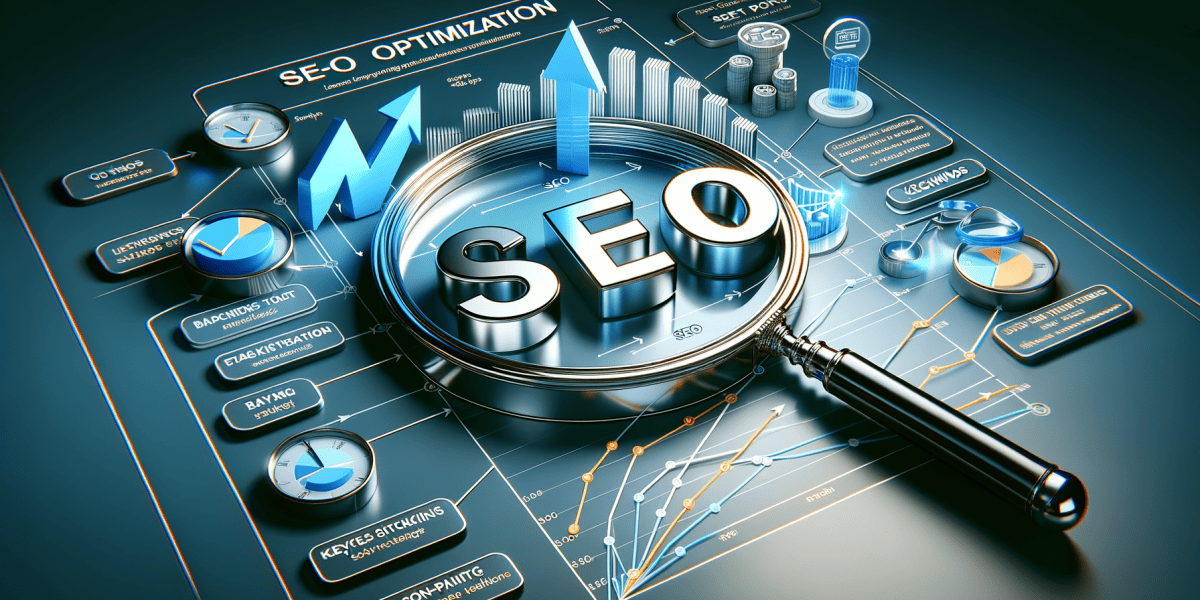What is SEO?
Search Engine Optimization (SEO) is a digital marketing strategy focused on enhancing a website’s visibility on search engines like Google, Bing, and Yahoo. The ultimate goal of SEO is to attract organic (non-paid) traffic to a website by improving its ranking on search engine results pages (SERPs) for relevant keywords and phrases. This is vital for businesses, bloggers, and organizations seeking to connect with users actively searching for information, products, or services online.
How Does SEO Work?
SEO operates through a combination of techniques and practices designed to improve rankings in search engines. Here’s a breakdown of the fundamental components involved:
1. Keyword Research
The foundation of any SEO strategy begins with effective keyword research. This involves identifying the phrases and words that potential customers are using to search for information related to your products or services. Tools like Google Keyword Planner and SEMrush help marketers discover high-traffic keywords with manageable competition.
2. On-Page Optimization
On-page SEO refers to the practices executed directly within a website to improve its ranking. Key elements include:
- Content Quality: High-quality, informative, and relevant content is crucial. Search engines prioritize content that provides value to users.
- Meta Tags: These include titles, descriptions, and headings. Properly optimized meta tags make it easier for search engines to understand the context of your content.
- URL Structure: Clean, descriptive URLs that include keywords can enhance user experience and rank better.
- Internal Linking: Linking to other relevant pages on your site encourages navigation and helps search engines crawl your pages more effectively.
3. Technical SEO
This aspect deals with the backend of a website, ensuring that it meets technical requirements set by search engines. Key areas include:
- Site Speed: Faster-loading sites tend to rank higher as they provide better user experience.
- Mobile-Friendliness: With many users browsing on mobile devices, having a responsive design is crucial.
- XML Sitemaps: These help search engines easily index your pages by providing a roadmap.
- Secure Sockets Layer (SSL): Websites using HTTPS are seen as more secure and are favored by search engines.
4. Off-Page Optimization
Off-page SEO refers to actions taken outside your website to impact its ranking. This primarily revolves around building backlinks. High-quality backlinks from reputable sites signal to search engines that your content is valuable. Social media presence and online reputation management also play significant roles in off-page SEO.
5. Content Marketing
Content marketing and SEO are closely intertwined. Regularly publishing high-quality, informative, and engaging content can attract links and shares, enhancing visibility and authority in search engines. Blogs, videos, infographics, and podcasts are effective formats for content marketing.
6. Local SEO
For businesses that operate locally, optimizing for local search is crucial. This includes managing Google My Business listings, obtaining reviews, and being active in local citations and directories. Local SEO techniques ensure that your business appears in relevant local searches.
7. Analytics and Monitoring
SEO is not a one-time task but an ongoing process. Utilizing tools like Google Analytics and Google Search Console helps track the effectiveness of your SEO efforts. By analyzing metrics such as traffic, bounce rates, and rankings, marketers can refine their strategies.
Why is SEO Needed?
SEO is essential for several reasons:
-
Increased Visibility: Most users don’t scroll past the first page of search results. SEO helps improve your ranking, thereby increasing the likelihood of attracting traffic.
-
Trust and Credibility: High-ranking websites are often perceived as more credible and trustworthy. Users tend to favor organic results over paid ads.
-
Cost-Effectiveness: Compared to paid advertising, SEO often yields a better return on investment (ROI). While it requires time and effort, organic traffic can be more sustainable long-term.
-
User Experience: Many SEO practices focus on improving user experience, like site speed and mobile-friendliness. A user-friendly website keeps visitors engaged and encourages them to return.
-
Targeted Traffic: SEO brings in targeted traffic. Since you optimize for specific keywords, the audience arriving at your site is more likely to be genuinely interested in your offerings, leading to higher conversion rates.









